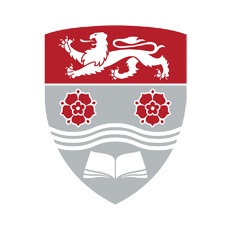fees waived
Linguistics and Philosophy, BA (Hons), with industry placement
Lancaster University, United Kingdom
Subject ranking
UK / The Times 3rd
UK / Guardian 4th
UK / CUG 6th
Costs
food & rentS$16.8K / year
Entry requirements
Scholarships
Limited quantity
Limited quantity
Limited quantity
Information
Code
Intakes
Website (External)
Programmes
Information
Duration
2028
How does language relate to thought? Studying language alongside philosophy will give you a fascinating insight into humanity. You’ll also learn about the history of philosophy and contemporary philosophical discussion. This three-year combined degree is provided by our Department of Politics, Philosophy and Religion and the Department of Linguistics and English Language.Your first year includes introductory modules in Linguistics and Philosophy. In your second year you’ll study modules such as Structures of the World’s Languages, Philosophy of the Mind and Philosophy of Science.The first year philosophy module ‘Introduction to Philosophy' introduces students to key themes in the study of philosophy. Consciously drawing on a broad range of philosophical traditions -- Continental, Analytic, and non-Western -- it aims to present a comprehensive overview of various theoretical sub-disciplines within philosophy, but also to equip students with the ability to reason and think clearly about the most fundamental questions of human existence. The course, though designed as an introduction to the advanced degree-level study of philosophy, will also function as a self-standing introduction to philosophy suitable for those seeking to broaden their understanding of philosophy as it has been practiced throughout various traditions.’ In the second and final years you will be able to choose from a broad range of philosophy modules, including for example: ‘Continental Philosophy; Logic and Language; Aesthetics; Moral Philosophy’. For more modules please see the PPR department website. In your final year, you’ll specialise even further. Choices include Psycholinguistics and Language and Identities: Gender, ethnicity and class. You can also choose to write a dissertation, exploring a topic that you’re particularly interested in, and this is overseen by a member of staff from our department who specialises in your particular area. You will delve further into the Sapir-Whorf hypothesis, linguistic relativity, and testing through psycholinguistic methods.We’ll assess your progress through coursework and exams and you’ll have regular meetings with your academic advisor, who will provide support and encouragement. Your degree will stand you in good stead for careers involving analysis, assessment and the weighing-up of arguments. The linguistic, analytical and investigative skills you will have the opportunity to develop are valued by employers such as law firms, management consultancies and the media. Linguistic awareness is a real boost when working for international and multicultural companies and organisations.To prepare students for their work placement year, our Careers and Placements Team will provide advice and guidance on: the skills required to create effective CVs, cover letters and applications; tips and techniques on how to make an impact at interviews and assessment centres; how to create a relevant digital profile; and how to research employers and career sectors of interest. In addition, there is great emphasis placed upon developing self-awareness and on how to present yourself in a professional manner to employers. This optional provision will be delivered via a blend of traditional and digital methods including face-to-face workshops, online webinars, e-courses and 1:1 appointments.The University will use all reasonable effort to support you to find a suitable placement for your studies. While a placement role may not be available in a field or organisation that is directly related to your academic studies or career aspirations, all placement roles offer valuable experience of working at a graduate level and gaining a range of professional skills. If you are unsuccessful in securing a suitable placement for your third year, you will be able to transfer to the equivalent non-placement degree scheme and continue with your studies at Lancaster, finishing your degree after your third year.
A local representative of Lancaster University in Singapore is available online to assist you with enquiries about this course.

